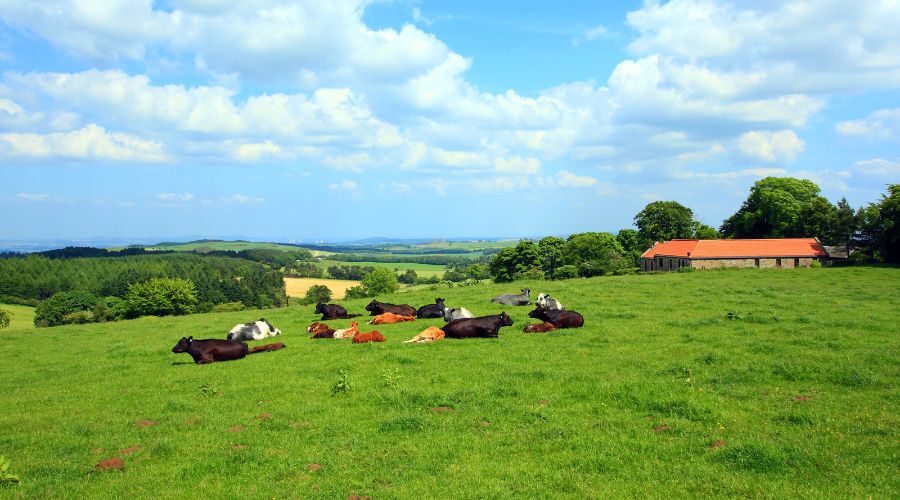Scottish farm profits cut by half in 2023/24
9th April 2025
Scottish farm incomes experienced a sharp decline in 2023/24, with farm profits being cut by half, the Scottish Government confirmed.

The downturn in incomes is attributed to three main factors. First, some agricultural output prices saw a large drop following exceptionally high levels of the last year.
This was compounded by decreases in output levels, with adverse weather conditions playing a role in diminishing production.
Finally, while some input costs show a modest decrease, costs did not fall at the same pace as output prices, putting additional pressure on profit margins, the Scottish Government explained.
Average farm income, a measure of farm profit after costs, fell by 51% from the high of the previous year. At £35,500 for the average farm, income is at its lowest level since 2019-20.
Farms make losses
Falls in cereal and milk prices resulted in large drops in income for arable and dairy farms. Average incomes of arable, dairy and mixed farms remain the highest across all farm types.
But a larger proportion of farms within these farm types are unprofitable compared to the previous year. In 2023-24, 31% of cereal and dairy farms are loss-making.
Livestock farms, which make up 60% of commercial farms, continue to make a loss on their agricultural activity on average.
Lowland cattle and sheep farm income fell by 87%, the largest drop in income across livestock farm types, largely driven by falls in livestock output. The proportion of unprofitable lowland cattle and sheep farms increased to 68%.
The average income of Less Favoured Area (LFA) livestock farms decreased by a third.
Increases in costs for fertiliser were often offset by decreases in feed and fodder, land and property costs. Across most farm types, regular labour costs fell. In some types, this was offset by increases in casual labour costs.
‘Wake up call to UK government’
NFU Scotland has responded with deep concern to new official statistics showing a dramatic 51% fall in average farm incomes in 2023/24.
The union said the figures highlight the deepening financial pressures facing Scotland’s food producers and underlines its calls for urgent, joined-up action across governments and fairer returns through the entire supply chain.

NFU Scotland president Andrew Connon said: “This sharp decline isn’t just about economics – it’s about the viability of farming businesses and the communities they support. For many, farm support is the only thing keeping the gates open.
“Without it, vital parts of our food system and rural economy simply wouldn’t survive. In addition, it’s alarming but not surprising to see the financials of the cereals and milk sectors given the subdued prices for cereals, not helped by continued grain imports, and huge disparity with milk contracts”.
“Farmers and crofters are part of the solution to climate and biodiversity goals, but we need fairer and sustained returns through supply chains, and a support framework that gives confidence to invest, produce food sustainably and plan for the future”.
The union has also criticised recent UK government proposals on inheritance tax, warning they would compound an already dire situation for family-run farms.
President Connon added: “This should be a wake up call to the UK government. It must urgently reconsider proposals that could decimate generational family farms. These are not cash-rich businesses – they’re the backbone of food production and rural Scotland.”
Read more farm business news.
